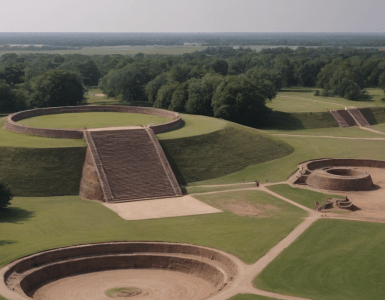Ever wonder how seemingly random events shaped the world we know? History isn’t just a linear progression of grand plans; it’s a chaotic mess of accidental inventions, fortunate encounters, and bizarre twists of fate that profoundly impacted our cultures. Let’s delve into some surprising links between historical happenings and the cultural practices we take for granted.
The Potato and the Rise of Europe
The humble potato. Sounds boring, right? Wrong! This South American spud’s arrival in Europe wasn’t exactly a planned conquest – more like a botanical happy accident. Its introduction, starting in the 16th century, was initially slow, seen as exotic and even suspect. But its high yield and nutritional value eventually made it a staple crop, especially in Ireland and other parts of Europe. This fueled population growth, providing the necessary workforce for the Industrial Revolution, drastically shifting demographics and completely altering the social and economic landscape. So, the next time you enjoy a plate of fries, remember the potato’s unlikely role in shaping modern Europe. And don’t forget the devastating Irish Potato Famine, a dark counterpoint to its positive impact, highlighting the fragility of dependence on a single crop. Garum's Reign and Fall
The Printing Press and the Reformation (and Shakespeare!)
Gutenberg’s printing press wasn’t just a technological advancement; it was a cultural earthquake. Before its invention, books were painstakingly hand-copied, making them expensive and rare. The printing press made knowledge – and specifically, Martin Luther’s rebellious ideas – accessible to the masses. The Reformation, with its challenges to the Catholic Church, wasn’t just about theology; it was fueled by the printing press’s ability to spread dissenting views rapidly and widely. Think about it: the widespread availability of the Bible in vernacular languages altered religious practices forever. And let’s not forget the impact on literature! The sudden proliferation of printed texts helped create a much larger reading public, directly contributing to the success of playwrights like William Shakespeare.
The Silk Road and the Exchange of…Diseases?
The Silk Road, that legendary network of trade routes, is often romanticized as a glorious exchange of goods and ideas. And it was! But it also played a less glamorous role as a superhighway for diseases. The spread of bubonic plague, smallpox, and other infectious illnesses along the Silk Road had devastating consequences, significantly impacting population dynamics and shaping the course of entire civilizations. The Black Death, which wiped out a significant portion of Europe’s population in the 14th century, is a chilling example of unintended consequences on a global scale. The relatively isolated communities previously untouched by these diseases had no immunity and were decimated. This dramatic population shift affected everything, from social structure to artistic expression.
Coffee and the Enlightenment
Coffee houses in 17th and 18th-century Europe weren’t just places to grab a caffeine fix; they were the original social media hubs. They fostered intellectual discussions, sparking debates about philosophy, politics, and the arts. These spaces became incubators for the Enlightenment, a period of intellectual ferment that fundamentally changed European thought and even shaped the American Revolution. The shared consumption of coffee, in a convivial setting, unintentionally facilitated the exchange of radical ideas that led to lasting social and political revolutions.
The Columbian Exchange: A Double-Edged Sword
Columbus’s voyages to the Americas aren’t just a tale of exploration; they’re a story of unprecedented biological exchange – the Columbian Exchange. This involved the transfer of plants, animals, and diseases between the Old and New Worlds. While it brought new crops like potatoes and tomatoes to Europe, it also had devastating consequences for indigenous populations, who had no immunity to diseases like smallpox and measles. The exchange fundamentally reshaped global agriculture and diets, but at a terrible cost. The accidental introduction of new diseases and the resulting demographic collapse had profound and lasting effects on the indigenous cultures of the Americas.
The Accidental Invention of Plastics
Plastics, ubiquitous in modern life, weren’t intentionally invented to clog our oceans. The accidental discovery of Bakelite in 1907 sparked a revolution in materials science, leading to a wide range of synthetic polymers that transformed everything from packaging to automobiles. The convenience and low cost of plastics made them incredibly popular, but their longevity and environmental impact are now undeniable consequences. This history highlights the unpredictable nature of innovation and the importance of considering long-term consequences.
Odd Fact: The Unexpected Origin of the QWERTY Keyboard
Think your keyboard layout is efficient? Think again. The QWERTY layout, the standard for most keyboards today, was originally designed to slow down typists to prevent mechanical typewriters from jamming. This accidental invention, born out of a purely practical issue, became the global standard, and it continues to be used even though newer designs may very well be more efficient. It’s a testament to the power of inertia and the strange ways history dictates our everyday experiences.
From potatoes to plastics, history is full of surprising connections and happy accidents. By appreciating these unexpected links, we can gain a deeper understanding of how chance has shaped the rich tapestry of human cultures.

























Add comment